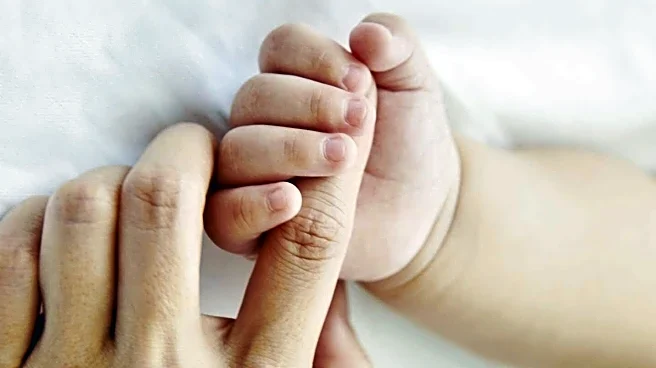What is the story about?
What's Happening?
A new study has revealed that the sound of a baby crying, particularly cries signaling pain, can cause a physical heat response in adults' faces. Researchers from Jean Monnet University and the University of Saint-Etienne conducted experiments with 41 participants, using thermal cameras to track facial temperature changes while they listened to recordings of babies crying. The study found that cries with high levels of nonlinear phenomena (NLPs) elicited stronger heat responses, indicating a subconscious physiological reaction. This response is thought to be a mechanism that prompts caregivers to take action.
Why It's Important?
The study provides insights into the physiological effects of infant cries on adults, highlighting the body's automatic response to distress signals. Understanding these reactions can improve caregiving strategies and enhance the ability to differentiate between cries of discomfort and pain. The findings may influence parenting practices and inform the development of tools or interventions to support caregivers in responding effectively to infant distress. Additionally, the research contributes to the broader understanding of human emotional and physiological responses to auditory stimuli.
What's Next?
Future research may explore how experience with infants affects physiological responses to cries, potentially comparing reactions between seasoned parents and those with little exposure to babies. Researchers may also investigate which specific acoustic elements of NLPs trigger the heat response, aiming to refine the understanding of how these sounds influence adult behavior. The study's preliminary nature suggests further exploration is needed to fully interpret the results and their implications for caregiving and emotional response mechanisms.















